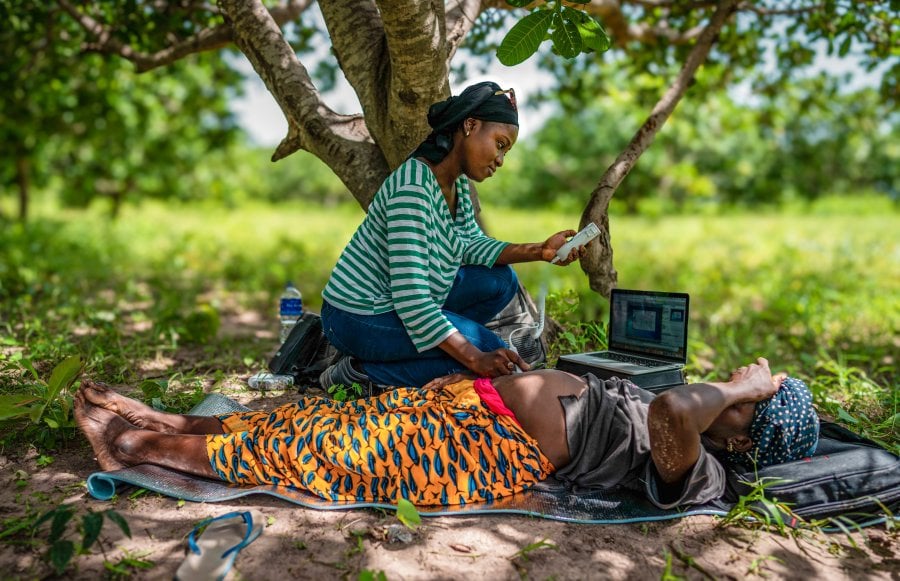
Using nationally representative data from the 2013 National Population and Housing Census, the prevailing pregnancy-related mortality for the country was robustly estimated at 861 per 100,000 live births, as opposed to 433 per 100,000 live births adopted in the Government’s national health policy and planning documents; and on which the country’s Sustainable Development Goal target for maternal mortality was based. Estimates by Local Government Area were also determined for the first time. Kuntaur Local Government Area registered the highest level of pregnancy-related mortality of 1 ,877 per 100,000 live births; followed by Mansakonko with 1,230 per 100,000 live births, and Basse with 1,096 per 100,000 live births. Pregnancy-related deaths were lower in Banjul and Kanifing municipalities with 524 and 621 per 100,000 live births, respectively.
Complementary information on causes of death also indicated that pregnancy-induced hypertension and obstetric haemorrhage, that is, bleeding as a result of childbirth, were the causes of seven in ten deaths among pregnant women or during and after childbirth.
According to Dr. Momodou Jasseh, Unit Demographer at MRCG and lead author of the study, “this research constitutes the first attempt to estimate mortality among women due to pregnancy-related causes using a nationally representative dataset, the 2013 census. All previous efforts were based on small sample surveys or indirect methods of estimation, which rendered their outputs largely flawed, significantly downward-biased and unsuitable for use in national maternal and reproductive health planning”.
“The Gambia’s Reproductive and Child Health policy and programme will need to be revised against the derived census-based pregnancy-related mortality ratio, and a new national Sustainable Development Goal target for maternal mortality set accordingly”, he concluded.
Dr. Mustapha Bittaye, Director of Health Services and a co-author, said that “by ascertaining what the national and regional levels have been in 2012, the results of this study has presented the Ministry of Health with an excellent opportunity to review the Government’s relevant health policies and programmes; as well as turn a new leaf in its engagement with NGOs, CSOs and the public on the issue of maternal/pregnancy-related mortality in The Gambia”.
“This study has highlighted the marked regional differences in maternal mortality and as such will guide the needed intervention and resources to be allocated at a particular region”, Dr. Bittaye remarked.
He also reaffirmed the commitment of the Ministry of Health in engaging in further collaborative research with MRCG on maternal or pregnancy-related mortality and propose evidence-based actions to curb the problem going forward.
On his part, the Statistician General of The Gambia Bureau of Statistics (GBoS) and a co-author, Nyakassi M.B. Sanyang, reiterated the importance of producing accurate statistics and indicators for use in the formulation of sound national development policies and programme planning. Mr. Sanyang registered the commitment of GBoS to include the relevant questions in the forthcoming and subsequent censuses to facilitate the estimation of more recent national and regional levels of pregnancy-related mortality in The Gambia.
###
Reference
Jasseh, M., Sanyang, N., Bittaye, M., Mohammed, N. I., Gazeley, U. M., Antonio, M., & Reniers, G. (2023). Burden and causes of pregnancy-related mortality in The Gambia: evidence from census and health and demographic surveillance data. BMJ Public Health, 1(1), e000019. https://doi.org/10.1136/bmjph-2023-000019
Contact
Isatou Njai-Cham
Head of Communications and Engagement
MRC Unit The Gambia at LSHTM
P. O. Box 273, Banjul
The Gambia
LSHTM's short courses provide opportunities to study specialised topics across a broad range of public and global health fields. From AMR to vaccines, travel medicine to clinical trials, and modelling to malaria, refresh your skills and join one of our short courses today.
